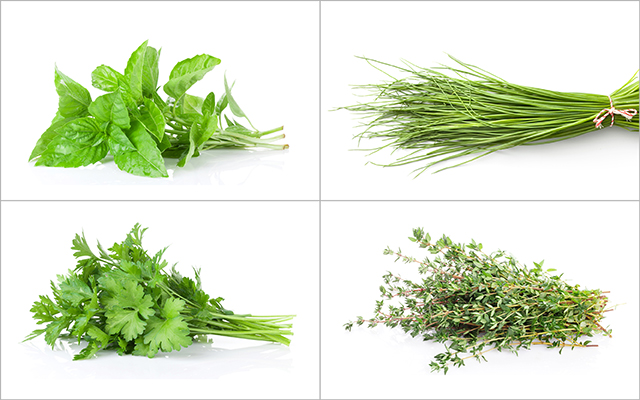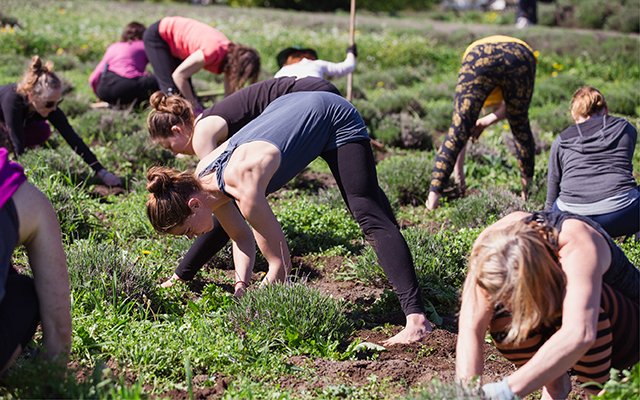Defining Our Terms
What, exactly, does “organic” gardening mean? In short: gardening without the use of synthetic (chemical) fertilizers or pesticides.
But there’s much more to it than that. Organic gardening is about understanding nature’s balancing act and using this knowledge to create a landscape burgeoning with safely grown plants that permit a self-sustainable lifestyle.
In truth, your plants are part of a system-one that begins with the soil you use and extends to water supply, insects, wildlife and the “end users” (you and your family). Your job, as an organic gardener, is to construct and maintain this system, replenishing resources your garden consumes for perpetual growth.
Choose plants, trees and greenery suited to the environment-those with the best chance of growing naturally in your particular climate. Opt for vegetation whose natural defenses will keep it healthy, without a great deal of attention or external influences.
To avoid pesticide use, study up on plants that are less prone to attract pests. Seek a consult from a local organic nursery. The trick is to follow nature’s lead and make selections that have the greatest potential for success.
Organic Gardening’s Benefits
In addition to protecting our environment, organic gardening is healthier for humans and animal life. Ingredients in synthetic fertilizers and pesticides pose a variety of health hazards. The U.S. Fish and Wildlife Service reports that American homeowners use up to 1000% more pesticides on their lawns than farmers apply to crops. Think about it: That’s a truly frightening statistic.
National Cancer Institute studies have linked home and garden pesticides with non-Hodgkin’s lymphoma, the sixth most common cancer in the United States. Researchers have also discovered an association between pesticides and lymphoma in dogs.
There are connections between pesticides and low fertility in men, a higher rate of birth defects in children, pediatric brain cancer, leukemia, neurological disorders, developmental disabilities, allergies, asthma and reproductive problems. Many lawn pesticides remain active in soil for months-even years-after their application.
Organic Alternatives
Pesticides include insecticides, herbicides and fungicides, which are designed to kill insects, weeds and diseases, respectively. To reduce their use, learn what is-and isn’t-harmful to your garden or lawn.
Many insects, for example, actually encourage lawn and plant growth by eating their more harmful brethren. For problem pests, use the barrier approach: Set up nets, screens and traps. Seventh Generation’s Natural Citrus Cleaner & Degreaser-an organic gardener’s secret weapon-safely kills aphids, whiteflies, fleas, mites, fire ants, houseflies and other pests, both outdoors and inside the home. Made with orange oil, it is completely natural and biodegradable, containing no chlorine, petroleum-based solvents, glycol ethers or dyes.
Some weeds, such as dandelions, forget-me-nots and chickweed, are also advantageous, improving fertility as they decompose and eliminating the need to use herbicides.
Deep-growing weeds like thistle help carry nutrients to the soil surface. If weeds are overrunning your lawn and you need to remove them, pull them out by hand or use a lawnmower.
Focus on alternatives to synthetic fertilizers. For example, you can compost with scraps from your kitchen, leaves, twigs, manure, grass clippings, old potting soil, hedge clippings and dead insects. This reduces waste and sets the stage for a lovely organic garden.
Regularly add such organic matter to your soil, and you’ll be amazed by the marked improvement in plant growth.
As with any task or project, deal with problems as they arise. Don’t procrastinate! If, for example, you see signs of mildew or mold on your plants, prune the involved area immediately.
To learn more about safe pest-control methods, check out information from The Pesticide Action Network North America (PANNA), headquartered in San Francisco.
Also, check out this informative blog entitled No Nutritional Difference Between Conventional and Organic Foods? The Organic Center to the Rescue!
Organic Authority is your trusted friend and the web’s leading resource for all things (what else?) organic!




This Post Has 0 Comments